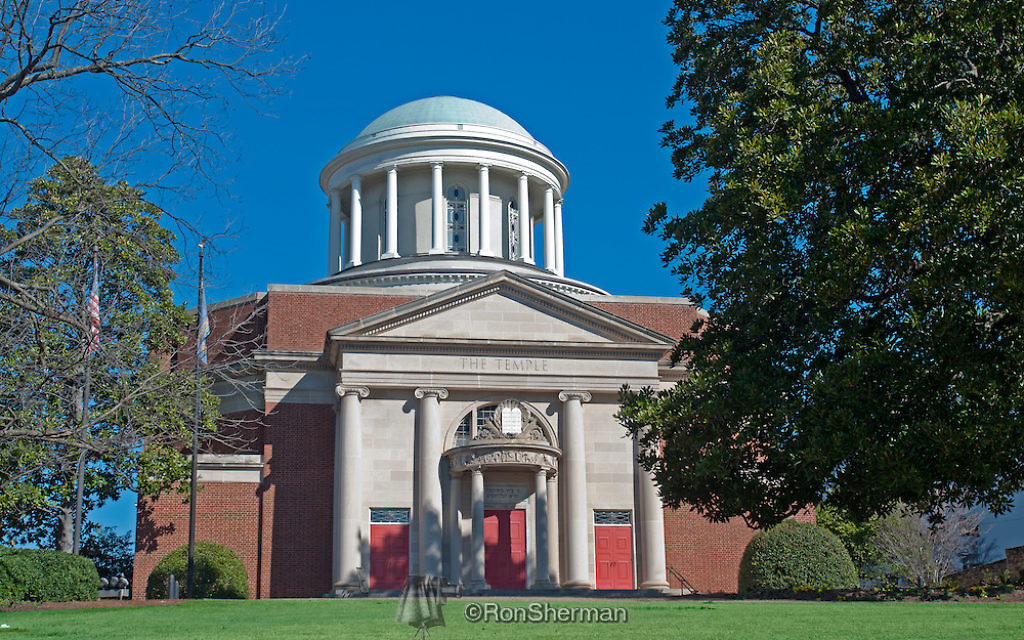The Temple: Religious Dialogue Crucial for Democracy
The worst and most powerful idols we have today are not made of stone and wood. They are made of ideas.
When I think about my predecessors, the rabbis who came before me at The Temple, I realize that I am standing on the shoulders of giants.
In 1957, a year before our own Temple was bombed, 80 white ministers in Atlanta publicly endorsed what has been referred to as the Ministers’ Manifesto, denouncing racial segregation. The statement was published in the Atlanta papers and subsequently in The New York Times.
Rabbi Jacob M. Rothschild, our rabbi, was instrumental in the writing of that manifesto. He knew then what we know today: Religious leaders must stand up to bigotry and hatred.
Get The AJT Newsletter by email and never miss our top stories Free Sign Up
We live in challenging times. The need for interfaith support and cooperation is as important today as it ever has been. We all have strong feelings about the major issues of the day: the environment, the rights of minorities, safety and security, peace in the Middle East. Those who are wise realize that there are legitimate arguments on the other side, even if we disagree.
Our lives are a balancing act between excessive modesty and excessive self-confidence. Sometimes, we feel our presence is too important to this world, and sometimes we feel our lives are no more important than anyone else’s.
When the scale tips toward arrogance, we risk becoming intolerant. Like most of us, I worry these days about fundamentalism: the belief that there is only one way. This does not mean we shouldn’t have strong faith. I am passionate about my Jewish faith. But when that passion leads one to believe that there is only one way, only one truth, inevitably violence and death will follow.
The worst and most powerful idols we have today are not made of stone and wood. They are made of ideas. Is single-minded fanaticism a necessity for passion, or can we have a multilingual view of G-d — the idea that G-d is not exhausted from a singular religious path?
I’d like to believe that it is possible that Islam, Christianity and Judaism could know of a G-d who speaks Arabic on Fridays, Hebrew on Saturdays and Latin on Sundays.
Any ideology that embraces only self-importance violates human rights and leads to disastrous outcomes. Those claiming to be the sole owners of wisdom terrorize us every single day. We live in a world that is threatened by those who are blind to the beauty of pluralism, who despise the idea of tolerance for other religions and ways of life, who have absolutely no faith in the rules of fair play.
Our ancestors abhorred idolatry because they knew that nobody owns spiritual truth.
The challenge of American democracy today is the same challenge religious Americans face. This is the reason for the 2017 Atlanta Interfaith Manifesto (www.atlantainterfaithmanifesto): to fashion a way that incompatible faith assertions can still talk with and learn from one another. What is needed most in our world is to speak to our neighbors of different faiths not with authority, but with reasoning; not with quotation, but with common ground.
Religion is still the logical grounding for our democracy, but we must learn to speak to one another in ways that we can each hear, in words that allow for learning and growth and even disagreement. This task is, in no small part, the last, greatest hope in our humanity.
In Jewish tradition, we have over 70 names and attributes for G-d. One of them is Adonai Tzilcha: “G-d is your shadow.” How can G-d be a shadow, a mere image cast on the ground, created by our own image? If you stand bent over, then the shadow of G-d will be contracted and shriveled, but if your stand straight, the shadow will expand and grow mightily.
In our community, when we stand with outstretched arms, G-d will be elevated and enlarged in our lives. G-d is reflected in our actions. In this new year, don’t think that only we live in G-d’s shadow; act as if God lives in ours.





comments